How many of you wish your employees would act like owners?
Jack Stack in The Great Game of Business has an answer.“If I’m going to ask you all to think and act like owners, we have to treat you like owners and ask you what you think.”
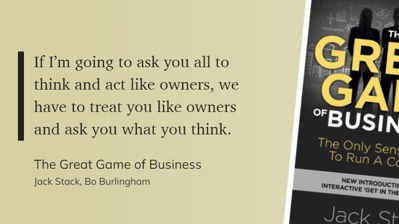 The Great Game of Business: The Only Sensible Way to Run a Company, ~ Jack Stack, Bo Burlingham
The Great Game of Business: The Only Sensible Way to Run a Company, ~ Jack Stack, Bo Burlingham
Half the Answer
This is only half the answer.
Do you recall your first venture into entrepreneurship?
I do! It was painful.
My first journey included taking a 25% pay cut from my previous position doing the same function. After the first year, I got another haircut!
The education, challenges, and steep learning curve were all part of my first foray into owning a business.
I discovered essential tools I hadn’t used when I managed the business. One of my partners was a banker. He taught me to build a budget, create a cash flow forecast, and understand why we needed to present our new business proposal to several banks in order to get the money we needed approved to start the business. He explained why as partners we didn’t want to have to sign personal guarantees, to avoid being personally responsible for the business's debts if the loan goes into default.
You probably went through a similar education process. Employees completely understand the risks you took to start the business.
Jack Stack suggests asking, “How much do you think we make out of every dollar we sell?”
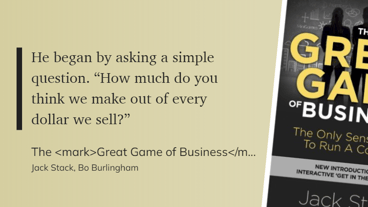 Chances are your employees don’t see the real risks, liabilities, and profits you take in. They imagine you’re making much, much, more than you are.
Chances are your employees don’t see the real risks, liabilities, and profits you take in. They imagine you’re making much, much, more than you are.
Few understand how much the government requires a profitable business to pay in taxes.
If business ownership were that lucrative and easy to do, everyone would. A banker friend of mine frequently tells me he didn’t have the risk tolerance to start a business. He was afraid to depend on his capabilities to pay him a living wage.
How do you get your employees to act like owners?
Educate Your People
Just like you had to learn the realities of starting/owning a business, so do your people. Some of them will not be interested. That’s okay. It may indicate they were the wrong people to have hired.
Many of them will. Some will possibly go on to own a business themselves someday. Is that a reason to discourage or fail to educate them?
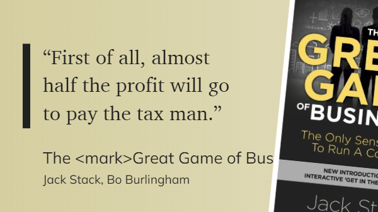 The more your employees know the better they will perform. The truth is both consequential and helpful. An employee who understands how little you receive as a return on your investment is more aware and diligent in performing their job helping you maximize your investment. When they see how they contribute, and recognize their impact on business performance, they will focus on those elements that drive growth, reduce expenses, and bring customers back.
The more your employees know the better they will perform. The truth is both consequential and helpful. An employee who understands how little you receive as a return on your investment is more aware and diligent in performing their job helping you maximize your investment. When they see how they contribute, and recognize their impact on business performance, they will focus on those elements that drive growth, reduce expenses, and bring customers back.
If you lose employees who learn so much after seeing how lucrative their efforts become for you, ask yourself this question. Would you have preferred they performed less enthusiastically, and efficiently while working for you? Did their increased knowledge, experience, and efforts ultimately help your business grow?
Any employee who puts their back into their work, understands, and willingly works to improve the business, for even one day, or one hour, is an asset!
Watch this 90-second video for an employee’s perspective on the Great Game of Business:
Great Game of Business Principles
The principles of Great Game of Business are integral to Scaling Up, and Metronomics, Positioning Systems’ coaching platform. Daily Huddles, weekly, monthly, quarterly, and annual planning meetings are part of the meeting rhythms these employ to achieve results. Strategic Discipline is foundationally based on these organizing principles.
Many business owners today are still unwilling to share financial information with their employees. They fear if employees know how much they make they’ll have a discontented, disaffected, disgruntled, and malcontented workforce.
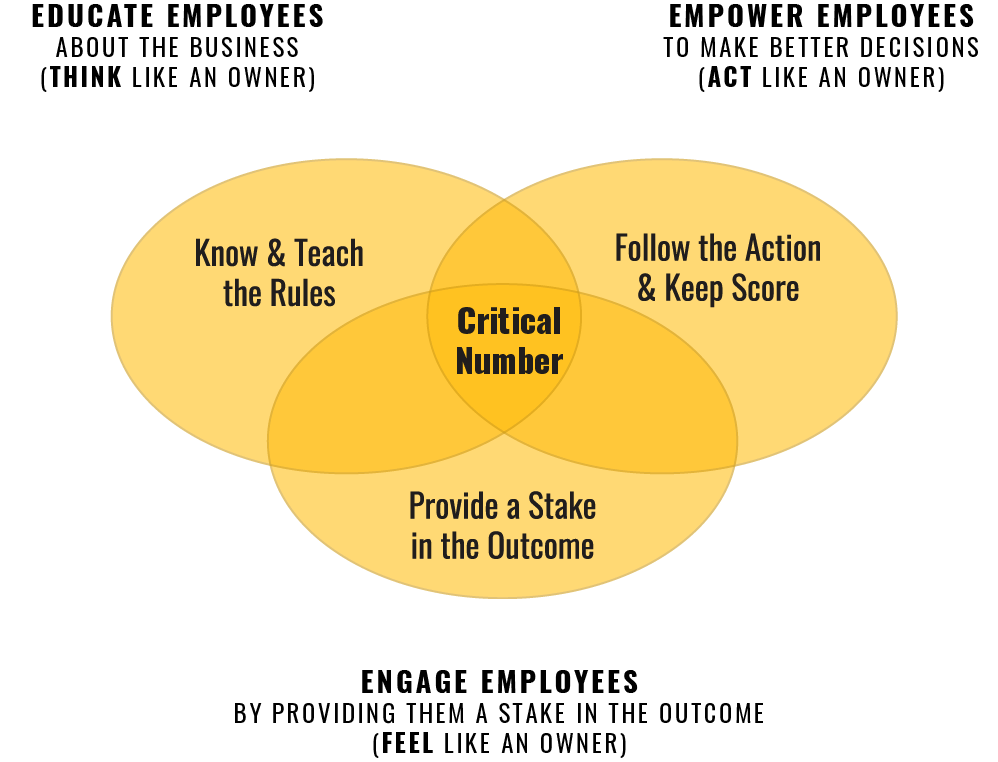 If you fear this from your employees, I recommend not initiating such a program. Our worst fears are often reinforced, consciously or unconsciously. In doing so you will confirm your fears.
If you fear this from your employees, I recommend not initiating such a program. Our worst fears are often reinforced, consciously or unconsciously. In doing so you will confirm your fears.
Instead, before you begin, and commit, learn more about Scaling Up, Metronomics, and the Great Game of Business. Learn how these coaching platforms have succeeded in achieving increased revenue and profits, greater employee engagement, harmonious and satisfying cultures, efficient and productive employees, higher company valuations, and dramatic increases in cash flow.
To create an environment where everyone is inspired to give their best, contact Positioning Systems to schedule a free exploratory meeting.
Turn your team into a growth organization.
Growth demands Strategic Discipline.
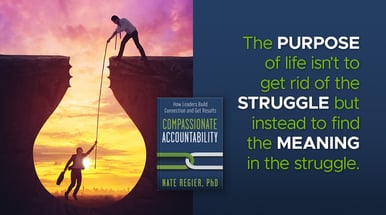 Many leaders feel compassion and accountability are at opposite extremes. Can you be compassionate and accountable? Nate Regier’s Compassionate Accountability: How Leaders Build Connection and Get Results, shares how each works together to achieve significant results. Next blog we explore Compassionate Accountability.
Many leaders feel compassion and accountability are at opposite extremes. Can you be compassionate and accountable? Nate Regier’s Compassionate Accountability: How Leaders Build Connection and Get Results, shares how each works together to achieve significant results. Next blog we explore Compassionate Accountability.
Building an enduring great organization requires disciplined people, disciplined thought, disciplined action, superior results, producing a distinctive impact on the world.
Discipline sustains momentum, over a long period of time, laying the foundations for lasting endurance.
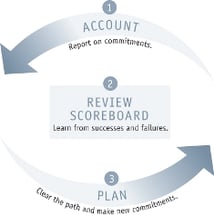 A winning habit starts with 3 Strategic Disciplines: Priority, Metrics, and Meeting Rhythms. Forecasting, accountability, individual, and team performance improve dramatically.
A winning habit starts with 3 Strategic Disciplines: Priority, Metrics, and Meeting Rhythms. Forecasting, accountability, individual, and team performance improve dramatically.
Meeting Rhythms achieve a disciplined focus on performance metrics to drive growth.
Let Positioning Systems help your business achieve these outcomes on the Four most Important Decisions your business faces:
|
DECISION |
RESULT/OUTCOME |
|
PEOPLE |
|
|
STRATEGY |
|
|
EXECUTION |
|
|
CASH |
|
Positioning Systems helps mid-sized ($5M - $500M+) businesses Scale-UP. We align your business to focus on Your One Thing! Contact dwick@positioningsystems.com to Scale Up your business! Take our Four Decisions Needs Assessment to discover how your business measures against other Scaled Up companies. We’ll contact you.
NEXT BLOG – Compassionate Accountability.jpg?width=163&height=244&name=Nate%20Regier%E2%80%99s%20Compassionate%20Accountability%20-%20How%20Leaders%20Build%20Connection%20and%20Get%20Results%20(Book).jpg)






.jpeg?width=150&height=135&name=Hand%20with%20marker%20writing%20the%20question%20Whats%20Next_%20(1).jpeg)

